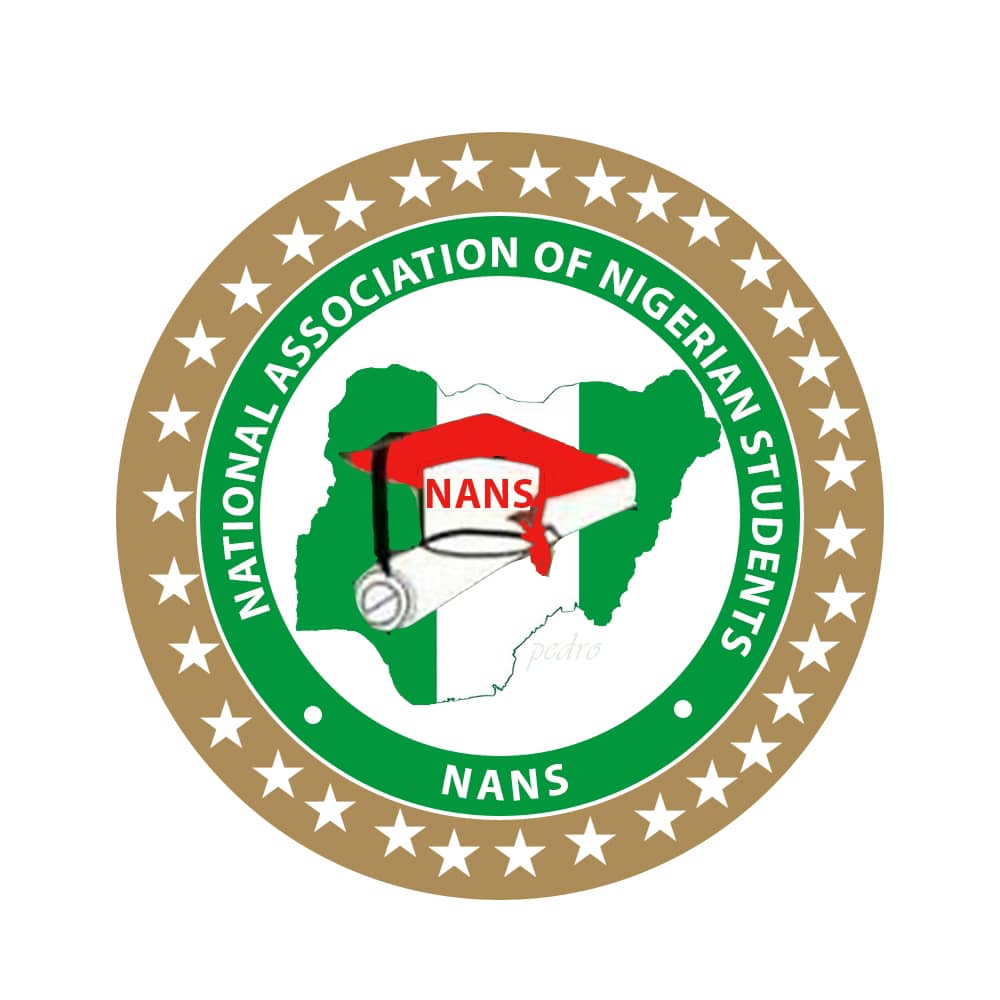Top Story
Banks’ LDR lowered to 50%

The Loan to Deposit Ratio (LDR) of Banks in the country rose to 50 percent from 65 percent.
This was disclosed by the apex Bank, Central Bank of Nigeria (CBN) in a circular to Deposit Money Banks titled “Re: Regulatory Measures to Improve Lending to the Real Sector of the Nigerian Economy.”
The LDR is a metric used to evaluate a bank’s liquidity by comparing its total loans to its total deposits over the same period, expressed as a percentage. An excessively high ratio may indicate insufficient liquidity to meet unexpected fund requirements.
In a bid to increase lending to the economy especially Small and Medium Enterprises, SME, retail mortgage and consumer loans, the CBN on July 3, 2019 increased Banks’ LDR to 60 per cent from 57 percent. The LDR was further raised to 65 per cent in January 20020.
The circular read, “The Central Bank of Nigeria’s (CBN) regulatory directive on the above subject dated January 20, 2020, referenced BSD/DIR/GEN/LAB/12/070 refers.
“Following a shift in the Bank’s policy stance towards a more contractionary approach, it is imperative to review the loan-to-deposit ratio (LDR) policy to align with the current monetary tightening by the CBN.
“Accordingly, the CBN has decided to reduce the LDR by 15 percentage points to 50 percent, in a similar proportion to the increase in the CRR rate for banks. All DMBs are required to maintain this level and are further advised that average daily figures shall continue to be applied to assess compliance.
“While DMBS are encouraged to maintain strong risk management practices regarding their lending operations, the CBN shall continue to monitor compliance, review market developments, and make alterations in the LDR as it deems appropriate.”
The reduction in the LDR according to analysts at Afrinvest Securities is to allow banks to comply with the Cash Reserve Ratio, CRR of 45 percent.
They said, “Today, the CBN in a circular to Deposit Money Banks titled “Re: Regulatory Measures to Improve Lending to the Real Sector of the Nigerian Economy” announced a scale down of the Loans to Deposits Rate (LDR) by 15.0ppts to 50.0 percent – reversing previous threshold set by the past CBN administration in January 2020.’
“In our view, this downward review of LDR allows banks to comply with the 45.0 percent CRR directive, and eases off pressure on the lenders considering the restrictive nature of other CBN directives including the Net Open Position (NOP) ceiling of 20.0 percent short and 0.0 percent long. Thus, we believe this policy would enhance the ability of banks to sweat out assets without creating unnecessary risks.”
Top Story
Fuel scarcity: MEMAN confirms availability of 300 million litres of petrol, works to end delivery glitch


…As Reps summon Petroleum Minister, other stakeholders over rising petrol prices
The Major Energy Marketers Association of Nigeria (MEMAN) has announced that Premium Motor Spirit (PMS), also known as petrol, is now available and that it is working with key stakeholders to resolve the current product delivery issues.
In a statement issued in Lagos, MEMAN revealed that its members in Apapa and other locations in Lagos are receiving product from 8 vessels this week, totaling over 300 million litres of PMS, which is significantly above normal levels.
According to the statement, “We are actively coordinating with our member companies through swaps and other supply arrangements to ensure that our member stations remain stocked and that the product is delivered to consumers without any further disruptions.
“We are actively coordinating with our member companies through swaps and other supply arrangements to ensure member stations remain stocked.
“Our depots will extend their loading times to ensure we load out as much as we can including tomorrow the 1st of May 2024.
“Our partners in NARTO & PTD have assured us of their support in ensuring the product gets to the retail outlets safely and quickly. We also will extend the opening times of selected retail outlets to ensure we can service our customers as long and as safely possible.
“Independent marketers (depots and stations) are being allocated additional PMS to alleviate the situation.
“We expect the situation to improve in the coming days as supply chains adjust and stabilise.”
“Despite the challenges posed by the return of fuel queues, MEMAN assures the public of its unwavering commitment to keeping them informed and providing regular updates.
“MEMAN deeply empathises with Nigerians facing the challenges occasioned by the current availability of Premium Motor Spirit (PMS) and the resulting queues at many retail outlets.
“We can see the frustration and difficulties this situation is creating. The Downstream Regulator, NMDPRA and other key stakeholders across the supply chain are fully engaged and supportive to eliminate the queues as swiftly as possible.
“Our top priority is to restore stability and ensure that fuel supplies reach all depots and retail outlets across Nigeria promptly. While the current situation has been challenging, we want to reassure the public that there is an adequate supply of PMS available,” the association confirmed.
…Reps summon Petroleum Minister, other stakeholders over rising petrol prices
Meanwhile, the House of Representatives has taken decisive action in response to the ongoing fuel scarcity gripping Nigeria, summoning the Minister of Petroleum Resources and other key stakeholders within the petroleum industry.
The move comes after the adoption of a motion titled “The Need To Address The Lingering Fuel Scarcity And Rising Retail Prices Of Premium Motor Spirit (PMS) Across Nigeria,” presented by Rep. Umar Shehu Ajilo during Tuesday’s plenary session.
The summoned stakeholders are expected to provide comprehensive briefings to the Assembly, outlining the measures in place to mitigate the existing crisis and prevent similar situations from arising.
“Concerned that this fuel scarcity is coming at a time when the adverse economic effect caused by subsidy removal and soaring inflation is yet to be addressed by the government, not to mention the deteriorating income of the Nigerian masses.
“Further concerned that the Nigerian National Petroleum Corporation Ltd is yet to address this perennial and persistent fuel scarcity problem faced by Nigerians despite the volume of resources at its disposal.
“Most worrisome that all these economic quagmires have made the lives of average Nigerians unbearable with a litre of fuel selling as much as N1,200 in some states of the Federation.
“This 10th Assembly must rise to the occasion to ensure that lasting measures are taken to address this unfortunate and embarrassing situation permanently in the interest of all Nigerians.”
However, Mr. Ajilo appealed to the House to extend invitations to the Minister of Petroleum Resources and pertinent stakeholders in the petroleum sector to convene before the assembly.
Top Story
NANS to embark on nationwide protest on May 7 over fuel scarcity, electricity crisis


By Sodiq Adelakun
The National Association of Nigerian Students (NANS) has announced plans to stage a nationwide protest on May 7, to demand urgent action from the government to address the persistent fuel scarcity and electricity crisis plaguing the country.
According to a statement issued by the Senate President of NANS, Akinteye Babatunde, the student body has been left with no choice but to take to the streets due to the government’s inability to effectively tackle these pressing issues.
The association expressed its deep disappointment and frustration over the continued hardships imposed on students across Nigeria due to the ongoing energy crises.
The protest, scheduled to take place in major cities and towns across the country, aims to amplify the voices of the student community and pressure the government to find lasting solutions to the fuel scarcity and electricity crisis, which have severely impacted the academic and social lives of students.
“We are mobilising for a nationwide protest to demand the removal of key officials responsible for exacerbating these issues,” Babatunde stated, highlighting the urgency of their demands.
NANS has launched protests targeting high-profile figures. Specifically, the Group Chief Executive Officer of the Nigerian National Petroleum Corporation Limited, Mele Kyari, and the Minister for Power, Bayo Adelabu, are under fire for their alleged mismanagement contributing to the energy woes.
NANS accuses Kyari and Adelabu of overseeing a leadership marked by severe mismanagement of crucial energy resources, exacerbating the nation’s turmoil.
The student body’s strategic protest plan spans various zones across the country, ensuring widespread participation and visibility.
Designated protest locations include Abuja Junction along the Abuja-Kaduna Expressway, Airport Road in Abuja, Lagos-Ibadan Expressway, Onitsha-Asaba Head Bridge, and Wuntin Dada along the Bauchi-Jos Road.
Babatunde added, “This is a collective stand against the systemic failures and neglect that have perpetuated a cycle of hardship and suffering among the populace.”
Top Story
Reps halt implementation of new electricity tariff


The House of Representatives has urged the Nigeria Electricity Regulatory Commission (NERC) to suspend the implementation of the new tariff.
The call was sequel to the adoption of a motion by Rep. Nkemkanma Kama (LP-Ebonyi) at plenary on Tuesday.
It would be recalled that NERC had one April 3, approved an increase in electricity tariff for customers who enjoyed 20 hours of electricity daily classified as Band A users.
Moving the motion, Kama said that the aim was to restore public trust, protect consumer rights, and ensure regulatory accountability in the Nigerian Electricity Supply Industry (NESI).
He said that facts presented showed that the approval granted by NERC resulted in a staggering 300 per cent rise for certain consumers.
“What is more concerning are the reports indicating discrepancies in customer categorisation and widespread complaints regarding inadequate service despite increased charges.
“This situation has not just sparked national anxiety, but it also threatens regulatory certainty and investor confidence in the sector, demanding immediate attention.
“This motion argues for legislative intervention, underlining our constitutional and moral obligations to address the crisis and alleviate the burden on Nigerian citizens.
“It places a strong emphasis on the legislative oversight role over NERC and the electricity utilities, stressing the need for fair and just pricing and consultation with stakeholders in tariff determination processes.
“This is not just a responsibility, but a duty we owe to our constituents,” he said.
The lawmaker alleged failure of due process in approving the tariff increase which raised concerns over discriminatory practices, and disputed the nature of government subsidies to Electricity Distribution Companies (DISCOs).
Sequel to the adoption of the motion, the House ordered the Nigerian electricity regulatory commission (NERC) to suspend the operation of the recently announced tariff increases and other conditions in the newly issued review of the MYTO.
The House resolved to set up a special committee made up of the Committees on Power, Commerce and National Planning to convene a public hearing on price regulation.
The lawmaker resolved to appoint a well-regarded former regulator as technical consultant to the house to develop templates for determination of the legality, reasonableness of the procedure adopted by NERC in approving the tariff increase and establishing the performance benchmarks for the Discos.
In his ruling, the Speaker of the house, Rep. Tajudeen Abbas said that the relevant committees should ensure compliance.
-
capital market2 years ago
Rt.briscoe, FBNH, Others halts negative performance of stock market
-
Finance3 months ago
Court orders Sen. Victor Umeh to repay N136m bank debt to AMCON
-



 Abuja Update2 months ago
Abuja Update2 months agoUNDP, FG partnership needed to achieve inclusion, equity- Minister
-
Abuja Update1 month ago
Banks drive stock market performance with N147bn gain
-



 Business1 week ago
Business1 week agoTingo Group unveils Tingo Electric, Tingo Cola drink at Lagos launch
-



 Health2 weeks ago
Health2 weeks agoCapacity training will reduce migration of health workers- NPHCDA
-
News4 months ago
Oil thieves sponsoring malicious media campaign against Navy – Spokesman
-



 Infotech1 month ago
Infotech1 month agoWorld Backup Day: NITDA urges Nigerians to ensure backup of data














